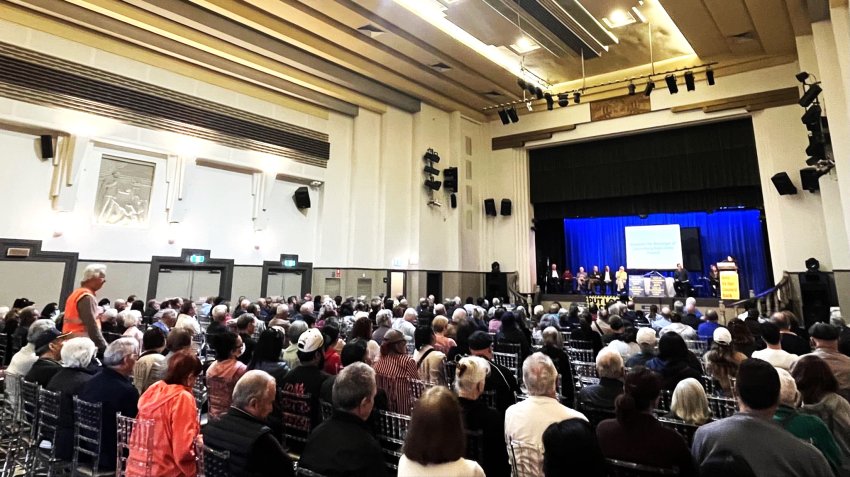
Local government minister Ron Hoenig has tabled a bill which purports to help councils deamalgamate, but does the opposite. It removes the only clause in the current law which mandates state funding for a demerger.
Hoenig’s Local Government Amendment (De-amalgamations) Bill 2024, tabled on February 6, removes the government’s liability to help councils demerge and stops councils from holding polls on deamalgamation — unless approved by the minister.
Hoenig told parliament that the Coalition’s forced council merger was a “policy failure that proceeded after Labor in opposition warned of negative consequences”.
Further, he said communities ended up with “merged councils with lower service standards, far less effective and efficient than they were before they merged”.
While Hoenig has acknowledged the problems, he does not intend to allow communities and councils to help rectify them.
Importantly, his bill removes a very important clause — which ensures that deamalgamating councils receive government funding (understood as a one-off grant) under Section 218CC.
He claims 218CC is “unconstitutional”, but has not released the evidence.
Hoenig said that “councils wishing to de-amalgamate must develop a robust business case upfront” which “must consider the financial impacts and council’s ability to fund de-amalgamation”.
His bill will also prevent smaller communities, such as Pittwater, which have been forcibly amalgamated into the larger Northern Beaches council, from being able to petition for a (non-binding) poll, which the current act allows.
Hoenig’s bill, under 218CD, clause 6, appears to prevent councils from using of Section 14 of the current act.
This allows councils to “take a poll of electors for its information and guidance on any matter” at council elections, to gauge resident’s views on de-merger, unless it has been a process defined by the Minister.
The Inner West Council (IWC) used this provision in 2021 to poll residents on the prospect of demerging back to the former Marrickville, Ashfield and Leichhardt councils.
Residents were supplied with information “for” and “against” and voted a resounding 62.5% “Yes” to demerge, despite Labor councillors running a negative financial scare campaign.
Since then, Labor councillors — with a majority of one — submitted a Business Case to the NSW Boundaries Commission. Rochelle Porteous, former Mayor of both Leichhardt Council and IWC, said it “did not present a roadmap for deamalgamation to the former Marrickville, Leichhardt and Ashfield Councils” and it was a case to “stay merged”.
Porteous, a member of Residents for Deamalgamation (RFD), disputes that the IWC deamalgamation would cost more than $150 million over 10 years. These figures are based on a “flawed methodology”, she said, adding that the minister himself was forced to admit in Budget Estimates that the high figure was inaccurate.
Michelle Hacking, another member of RFD, said: “Hoenig’s bill removes government responsibility for the policy failures and makes rate-payers foot the bill”.
Grantley Ingram from Demerge NSW Alliance described Hoenig’s bill as “an attack on democracy”.
“Both major parties admit that council amalgamations was a failure, but they don’t want to do anything about it,” he said on social media.
Darriea Turley, Local Government Association of NSW president and Broken Hill Labor councillor, described the bill as a “cunning sleight of hand”.
Councils shouldn’t have to carry the financial burden of unravelling forced amalgamations, she told Government News. “The decision not to fund de-amalgamations will make it virtually impossible for councils wishing to de-amalgamate.
“This is sleight of hand by the new state government which knows that councils do not have the tens of millions of dollars required to de-amalgamate,” Turley said.
“It’s a cunning public relations exercise by the state government so that it looks good in the eyes of ratepayers by agreeing to allow de-amalgamations, while at the same time knowing councils cannot foot the bill to carry them out.”
Cootamundra-Gundagai Council Mayor Charlie Sheahan said he expected Hoenig to approve their demerger, given the NSW Boundaries Commission recommendation and approval from the previous minister.
“The decision was made by the previous government [that] we are to demerge and it’s to be at the cost of the state government,” Sheen said.
Demerger NSW Alliance, RFD and a number of other resident-based groups across NSW have had significant input into Greens MLC Dr Amanda Cohn’s bill, which allows for binding plebiscites if 10% of residents petition for it.
It gives democracy back to local government by preventing the minister, or the unaccountable NSW Boundaries Commission, from vetoing a decision made by a majority of residents in an affected council area.
Hoenig’s bill gives the minister “king-making” powers over communities wishing to demerge their unwieldy and non-functioning councils. Yet, he has described Cohn’s bill as “undemocratic”.
Cohn said Hoenig’s bill “takes councils one step forward legally but two steps back because of the financial burden it poses for them to fund their own de-amalgamation.
“Impacted communities have already paid the cost for forced amalgamations through inefficiency, cuts to local services and weakened local democracy.”
[Pip Hinman is an activist with Residents for Deamalgamation.]